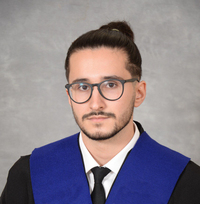TCEP Physicians and Surgeons
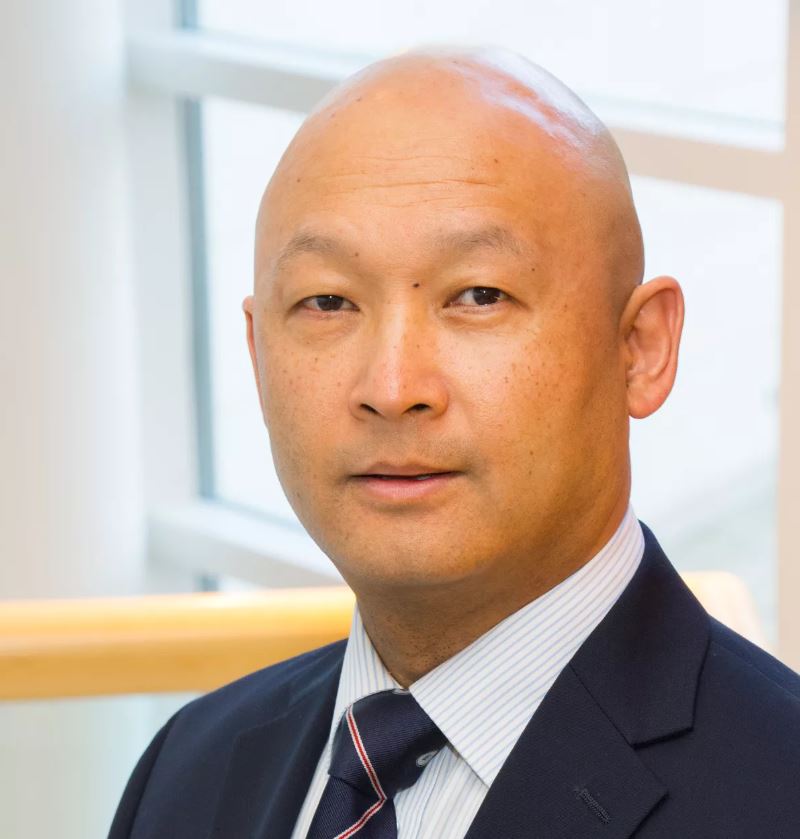 Samden Lhatoo, M.D., FRCP (Lon) Neurologist
Samden Lhatoo, M.D., FRCP (Lon) Neurologist
Dr. Lhatoo is an epileptologist who is an expert in the medical and surgical management of difficult to treat epilepsy. He is the John P. and Kathrine G. McGovern Distinguished University Professor of Neurology at the University of Texas Health Science Center’s (UTHSC) McGovern Medical School and Executive Vice Chair of the Department of Neurology. Dr. Lhatoo also serves as Director of the Texas Comprehensive Epilepsy Program (TCEP) and Co-Director of the Texas Institute of Restorative Neurotechnologies. He trained in epilepsy and epilepsy surgery at the National Hospital for Neurology and Neurosurgery at Queen Square in London, UK, and at the Cleveland Clinic Foundation. His main research interests are in the mortality of epilepsy and sudden unexpected death in epilepsy (SUDEP), using multi-centric, big data approaches, machine learning and the use of innovative new technologies for health and disease monitoring. His research is funded by the National Institutes of Health, and he is Co-Director and Co-Principal Investigator of the NIH funded Center for SUDEP Research. He has authored over a hundred peer reviewed journal articles, as well as several book chapters. He has edited textbooks on epilepsy and epilepsy surgery, including the recent book “Invasive Studies of the Human Epileptic Brain”. Dr Lhatoo is the former Dorothy Blair and Robert Daroff Endowed Chair in Epilepsy at Case Western Reserve University, and is a Fellow of the Royal College of Physicians in London, UK.
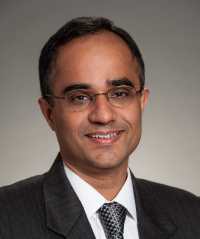 Nitin Tandon, M.D. Neurosurgeon
Nitin Tandon, M.D. Neurosurgeon
Dr. Nitin Tandon is Professor of Neurosurgery and Pediatric Surgery at the McGovern Medical School at the University of Texas Health Science Center in Houston Texas. He received his medical degree at the Armed Forces Medical College in Pune, India, followed by a residency in neurosurgery at The University of Texas Health Science Center in San Antonio and then a fellowship in epilepsy surgery at the Cleveland Clinic. Dr. Tandon currently serves as the Chief of the Epilepsy Surgery in The Texas Comprehensive Epilepsy Program, the leading program in the southwestern United States for the diagnosis and surgical treatment of epilepsy in patients of all ages. He has performed more than 3500 brain operations, with more than 1200 for brain tumors and 800 for epilepsy. He has pioneered innovative technologies in azimuth based robotic stereo-electro-encephalography, laser interstitial ablation and other minimally invasive approaches to brain tumors and epilepsy. His research work yields fundamental insight into the processes of cognition and epilepsy using intracranial recordings and multi-modal comparisons linking non-invasive imaging data and tractography datasets with intracranial recordings and cortical stimulation. This will pave the way for innovative rehabilitative and neuro-prosthetic approaches to the remediation of aphasic and dyslexic disorders and intractable epilepsy. He also holds a joint appointment as a Professor in the Department of Electrical and Computer Engineering at Rice University. He has been the recipient of multiple NIH, NSF and foundation grants and his research is currently funded by a BRAIN initiative U01 (NINDS-NIDCD), an R01 (NIDCD), and by the NSF. He has authored over 70 peer reviewed publications including in journals such as Nature Neuroscience, Brain, Cerebral Cortex, Journal of Neuroscience, Journal of Neurosurgery and Neurosurgery.
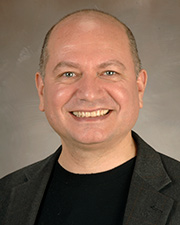 Yuri A. Dabaghian, PhD. Assistant Professor
Yuri A. Dabaghian, PhD. Assistant Professor
Dr. Dabaghian is an Assistant Professor in the Department of Neurology at UT Health Department of Neurology. He began his career as a theoretical physicist working in quantum chaos theory, having obtained his Master’s degree at the Landau Institute for Theoretical Physics in Moscow, Russia and his PhD in theoretical and mathematical physics at the University of Rhode Island. Deciding to pursue the geometric and topological ideas from a different perspective, he was awarded a Sloan Swartz fellowship to study experimental and computational neuroscience at UCSF, where he researched principles of spatial perception and spatial memory. His current research interests lay in developing computational and theoretical models of hippocampal spatial memory, principles of geometric information processing in the brain, and developing complexity measures of spatial behavior and memory tasks.
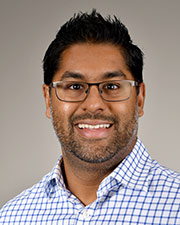 Jay Raman Gavvala, M.D. Neurologist
Jay Raman Gavvala, M.D. Neurologist
Dr. Gavvala is an epileptologist with a focus on the medical and surgical treatment of epilepsy. He received his medical degree from the University of Texas Medical Branch in Galveston, TX and completed his neurology residency and fellowship in clinical neurophysiology at Northwestern University Feinberg School of Medicine. Dr. Gavvala is currently an associate professor of neurology at McGovern Medical School at UT Health and is a member of the Texas Comprehensive Epilepsy Program. He has interests in treatment of drug resistant epilepsy, stereo-electroencephalography, critical care EEG, neuromodulation in epilepsy and magnetoencephalography. He also serves as director of the Adult Magnetoencephalography Laboratory at Memorial Hermann Hospital.
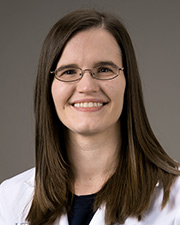 Katherine M.J. Harris, M.D. Neurologist
Katherine M.J. Harris, M.D. Neurologist
Dr. Harris is fellowship trained in epilepsy and intracranial EEG and certified by the American Board of Psychiatry and Neurology. Her clinical interests include seizures and epilepsy, medical and surgical treatments for epilepsy, stereoelectroencephalography (SEEG), and critical care EEG. A native Houstonian, Dr. Harris graduated summa cum laude from the undergraduate neuroscience program at Baylor University in Waco, Texas, where she received the Outstanding Research in Neuroscience Award and was named Outstanding Senior in Neuroscience. She received her medical degree and neurology residency training from McGovern Medical School at UTHealth, followed by fellowships at the same institution in epilepsy and intracranial EEG. She completed the Healthcare Management Certificate Program at the University of Houston-Clear Lake and the Physician Educator Certificate Program at McGovern Medical School. An assistant professor of neurology at McGovern Medical School, Dr. Harris is a member of the team at the Texas Comprehensive Epilepsy Program and also is the Epilepsy Fellowship Program Director. She has received multiple Dean’s Teaching Excellence Awards since joining the UTHealth-McGovern faculty. Her research is focused on medical education and improving quality of life for people with epilepsy. She also has interests in mentorship and resident and fellow wellness. Dr. Harris works with adult patients at UTHealth Neurosciences-Neurology to control their seizures through individualized treatment options.
 Nuria Lacuey, M.D, PhD. Neurologist
Nuria Lacuey, M.D, PhD. Neurologist
Dr. Lacuey is an Epileptologist with expertise in the medical and surgical treatment of epilepsy. She completed her two year epilepsy and clinical neurophysiology fellowship at Case Western Reserve University in Cleveland. She has specialized training in evaluating patients with medically refractory epilepsy for surgical treatment options. She received her PhD on sudden unexpected death in epilepsy (SUDEP), and worked as an Assistant Professor in Neurology and as an Epileptologist at Case Western Reserve University. Her main research interests are in the brain mapping of cardiorespiratory function and mortality of epilepsy. Dr. Lacuey is Assistant Professor of Neurology at the University of Texas Health Science Center’s (UTHSC) McGovern Medical School. She has published her research in numerous journals, including JAMA Neurology, Neurology and Epilepsia.
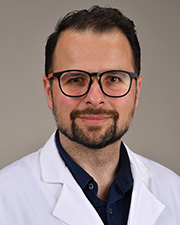 Dennis Lal, PhD. Associate Professor
Dennis Lal, PhD. Associate Professor
Dr. Lal holds the position of Associate Professor and serves as the Director of the Center for Neurogenetics at UTHealth Houston in the United States. His academic journey encompasses a Bachelor of Science degree in Biochemistry, a Master’s degree in Genetics, and a Ph.D. in Neurogenetics, all of which he obtained with honors from the University of Cologne in Germany. Driven by his passion for cutting-edge research, he delved into postdoctoral training in quantitative Epilepsy genetics, first at the University of Cologne and later at the prestigious Broad Institute of Harvard, M.I.T., and Massachusetts General Hospital in the USA. Dr. Dennis Lal is an accomplished researcher and educator in genetics and clinical neurogenetics, devoted to enhancing our comprehension of brain disorders through genomic research and its application in clinical care. His contributions to science include the discovery of disease genes associated with epilepsy, studies on epilepsy copy number variants, studies on somatic genetic variants in human brain tissue, and polygenic risk, and investigations into the genetics of neurodevelopmental disorders. As the Director of the Center for Neurogenetics at UTHealth Houston, he is continuing his ongoing research program and, clinically, is facilitating the utilization of genetic tests and advanced genetic test interpretation at the neurological institute to establish gene-informed precision medicine clinical trials.
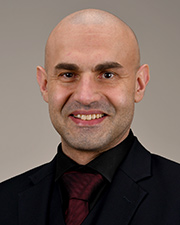 Costin Leu, PhD. Assistant Professor
Costin Leu, PhD. Assistant Professor
Dr. Costin Leu is an Assistant Professor of Neurology at the McGovern Medical School at UTHealth Houston. He received his Ph.D. in Genetics with magna cum laude from the University of Cologne, Germany, and completed his postdoctoral training in Neurogenetics under the mentorship of Prof. Sanjay M. Sisodiya at University College London (UK).
Dr. Leu is an internationally recognized expert in large-scale genetic association studies, polygenic risk scoring, and next-generation sequencing data processing. Following his specific interest in complex/polygenic forms of epilepsy, he played key roles in half of all published genome-wide association studies (GWAS) in epilepsy. This includes his key contributions to all GWAS meta-analyses conducted by the ILAE Consortium on Complex Epilepsies, where he served as a member of the analysis committee and co-developer of the GWAS protocol. Dr. Leu then spearheaded the development of polygenic risk scores for epilepsy and has mentored several follow-up studies investigating the polygenic architecture of various epilepsy types. Dr. Leu published several other innovative scientific studies, such as the first exome-wide genetic study of sudden unexpected death in epilepsy (SUDEP), the first genetic study in psychogenic nonepileptic seizures (PNES), and the first CNV-based GWAS study in seizure disorders (concurrently the largest to date in epilepsy). Most recently, Dr. Leu, in collaboration with Prof. Dennis Lal, is pursuing one of the largest ongoing somatic genetic studies in lesional focal epilepsies. To date, Dr. Leu has co-authored 70 peer-reviewed publications, including articles in prestigious journals such as The Lancet, New England Journal of Medicine, Science, The Lancet Neurology, and Nature Genetics.
Since 2012, Dr. Leu has been involved in several active international research consortia on epilepsy (ILAE, Epi25, Enigma-Epilepsy) and currently leads the biobank analyses of the ILAE Consortium on Complex Epilepsies. His multifaceted contributions highlight his leadership and unwavering dedication to advancing our understanding of epilepsy.
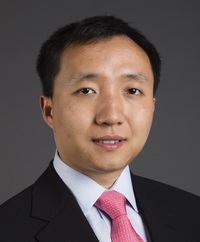 Xi Luo, PhD. Biostatistician
Xi Luo, PhD. Biostatistician
Dr. Xi “Rossi” Luo is Associate Professor in Biostatistics and Data Science at the Department of Biostatistics and Data Science at the University of Texas Health Science Center at Houston School of Public Health. He received his Ph.D. in Statistics from Yale University. His primary methodological research interests include machine learning, network/pathway inference, big data analytics, statistical methods for clinical trials, causal inference, and statistical computing, with applications in biomarker analysis from neuroimaging and genetics data. He has served as PIs on NSF and NIH grants for such methodological efforts. His methodological work has appeared in high-profile Biostatistics journals such as the Journal of the American Statistical Association, Annals of Statistics, Biostatistics, and Biometrics. His current scientific interests include epilepsy, SUDEP, Alzheimer’s disease and related dementias. He has collaborated with scientific collaborators on NIH and NSF grants, and co-authored papers in top scientific journals such as JAMA, PNAS, Journal of Neuroscience, Brain, and Nature Genetics.
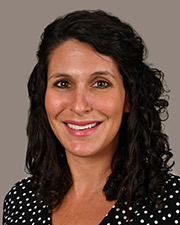 Yosefa A. Modiano, PhD. Neuropsychologist
Yosefa A. Modiano, PhD. Neuropsychologist
Dr. Yosefa Modiano has expertise in clinical neuropsychology and holds a joint appointment in the Vivian L. Smith Department of Neurosurgery and the Texas Institute for Restorative Neurotechnologies (TIRN), a multidisciplinary role that marries best practices in clinical care with collaborative research. She has clinical interests in the cognitive, psychiatric, and functional outcomes of individuals with a variety of neurologic conditions, with a special emphasis on the evaluation of neurocognitive functioning in the context of epilepsy surgery and promoting the best possible quality of life for patients. Her research interests include social determinants of access to epilepsy care and exploring the impact of health literacy on patient outcomes.
Dr. Modiano received her bachelor’s degree in psychology and environmental studies at Tufts University in Medford, Massachusetts, where she was on the Dean’s List all semesters and graduated magna cum laude. She earned her master’s and doctoral degrees in clinical psychology with an emphasis on neuropsychology at The Graduate Center, City University of New York (CUNY) in New York City.
Dr. Modiano has authored numerous peer-reviewed journal articles and abstracts, as well as book chapters, and has made invited presentations nationally. She is an invited journal reviewer for Applied Neuropsychology, Neuropsychology, and Translational Issues in Psychological Science.
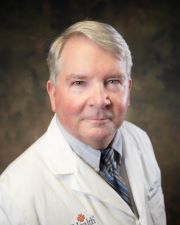 John C. Mosher, PhD. Professor
John C. Mosher, PhD. Professor
Dr. Mosher is a Professor of Neurology and Scientific Director of Magnetoencephalography Research at the University of Texas Health Science Center McGovern Medical School. Dr. Mosher is an expert in the field of signal analysis, source modeling and visualization of Magnetoencephalography (MEG) and Electroencephalography (EEG) data. His main research interests are in developing research and real-time brain imaging tools, and translating these into clinical practice.
Dr. Mosher received the Bachelor of Electrical Engineering (B.E.E.) degree with highest honors from the Georgia Institute of Technology, Atlanta, GA, USA, in 1983, and the M.S. and Ph.D. degrees in Electrical Engineering from the Signal and Image Processing Institute, University of Southern California, Los Angeles, CA, USA, in 1985 and 1993, respectively. From 1983 to 1993 he was with TRW, Los Angeles, CA; from 1993 to 2008 with Los Alamos National Laboratory, Los Alamos, NM; and from 2008 to 2018 with the Cleveland Clinic, Cleveland, OH. He joined UTHealth Houston in 2018. His research interests include MEG/EEG/SEEG signal processing, source localization, and neuroimaging methods.
Dr. Mosher has authored nearly 200 papers appearing in Google Scholar, with over 10,000 citations.
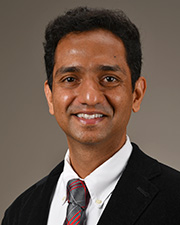 Rohan Samant, M.D. Neuroradiologist
Rohan Samant, M.D. Neuroradiologist
Dr. Samant is Associate Professor of Diagnostic and Interventional Imaging. He finished his medical school at Jawaharlal Nehru Medical college, India. Internship, residency in diagnostic radiology and neuroradiology fellowship at University of Arkansas, Little Rock, AR. He is an expert neuroradiologist and specializes in the neuroimaging of epilepsy, using an array of techniques, including MRI, functional MRI, PET and SPECT imaging.
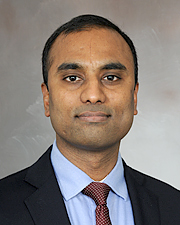 Sudhakar Selvaraj, M.D, PhD. Psychiatrist
Sudhakar Selvaraj, M.D, PhD. Psychiatrist
Dr. Sudhakar Selvaraj is an Assistant Professor and the director of the Depression Research Lab in the Department of Psychiatry and Behavioral Sciences. He also serves as the Director of the UTHealth Student Counseling Center, which provides mental health services to students at UTHealth. He qualified in medicine in India and completed clinical psychiatry residency training at the University Oxford and Maudsley Hospital and Institute of Psychiatry in London. He studied the role of serotonin transporters in major depressive disorders for his PhD under the supervision of Professor P.J. Cowen at the University of Oxford, UK. He has broad experience in clinical psychiatry with specific interest in treating and managing patients with mood disorders such as major depression, bipolar disorder, and anxiety disorders. His research has primarily focused on understanding the neurobiological mechanisms underlying the mood and psychotic disorders. He has specific training and expertise in psychopharmacology and brain imaging techniques, both structural and functional Magnetic Resonance Imaging/Spectroscopy and Positron Emission Tomography (PET) imaging and its applications in neuropsychiatric disorders.
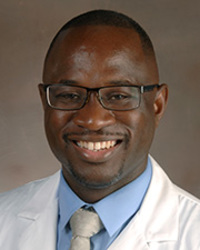 Shaun O. Smart, M.D. Neurologist
Shaun O. Smart, M.D. Neurologist
Dr. Smart is Assistant Professor in Neurology, Director of the Continuous EEG Monitoring Program and Co-director of the Neurohospitalist Fellowship Program. He is an expert in Neuro-Hospitalist Medicine and Epilepsy. Dr. Smart attended the University of Miami where he received undergraduate degrees in Biomedical Engineering, Physics and Philosophy while being part of the University of Miami Honors College. He received his medical degree from the University of Michigan, Ann Arbor. and completed his residency in Neurology at the University of South Florida. He has worked in Miami, Florida at Baptist Hospital as the Assistant Medical Director of the Epilepsy Monitoring Unit and at Palmetto General Hospital as the Medical Director of the Epilepsy division.
 Sudha Tallavajhula, M.D. Neurologist
Sudha Tallavajhula, M.D. Neurologist
Dr. Tallavajhula is an Associate Professor in the Department of Neurology at McGovern Medical School at UTHSC. She is Medical Director of the Neurological Sleep Medicine Center at The Institute of Rehabilitation and Research, Memorial Hermann Hospital, and Director of the Ambulatory EEG Monitoring Program. Dr. Tallavajhula completed her fellowship training in clinical neurophysiology/epilepsy and then in sleep medicine both at the McGovern Medical School. She underwent residency training in neurology at the University of Texas Medical Branch in Galveston, Texas after medical school in India. She currently practices both epilepsy and sleep medicine in several locations across the greater Houston area. Her areas of interest include sleep disorders in patients with neurological conditions, quality care in community sleep medicine, nocturnal and symptomatic epilepsies.
 Jessica A Johnson, MSN, FNP. Epilepsy Surgery Nurse Practitioner
Jessica A Johnson, MSN, FNP. Epilepsy Surgery Nurse Practitioner
Jessica Johnson is a Nurse Practitioner/ Neurosurgery Epilepsy program coordinator. She finished her masters in Nursing from University of Texas Houston. She works closely with patients and navigates their journey from clinic to surgery.
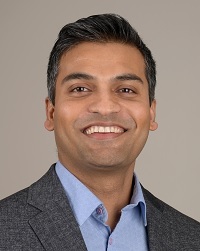 Johnson P Hampson, MSBME. Director Clinical Operations
Johnson P Hampson, MSBME. Director Clinical Operations
Johnson Hampson is a Neurological Imaging specialist who works with Neurosurgeons’ and Neurophysiologists’ to localize seizure onsets and facilitate surgical navigation. After his masters in Biomedical Engineering from Michigan, Johnson pursued a career in medical image processing to bridge the gap between Medicine and Engineering. His work has tremendously improved visualization of postop SEEG electrodes for surgical planning and education. He is an expert in image post-processing for epilepsy surgery. He has written and co-authored multiple peer review publications on chronic pain, cancer fatigue and SUDEP research.
Administrative Staff Contact
- Andrew Coulter
Administrative Program Manager
Texas Comprehensive Epilepsy Program
(832) 325-7071 tel

